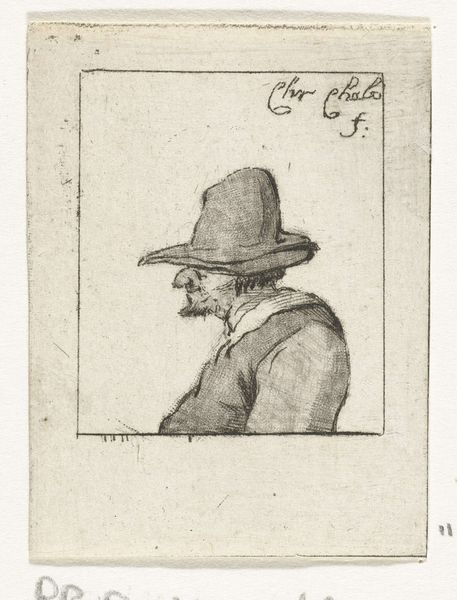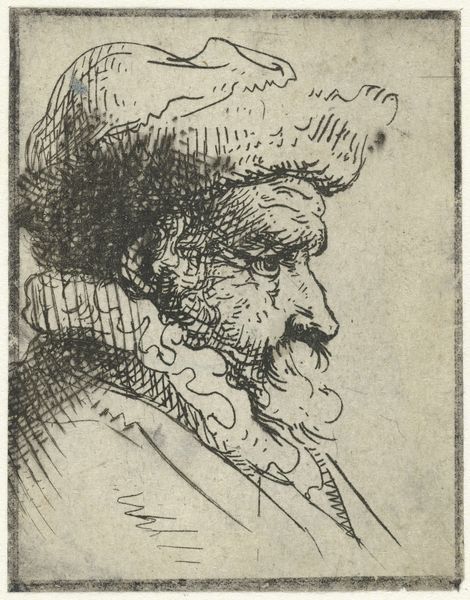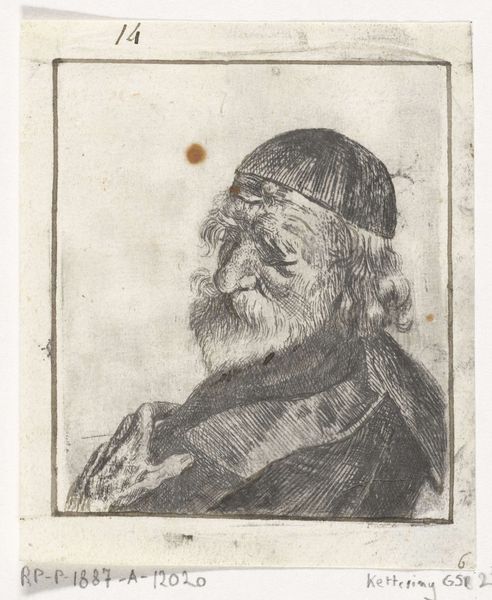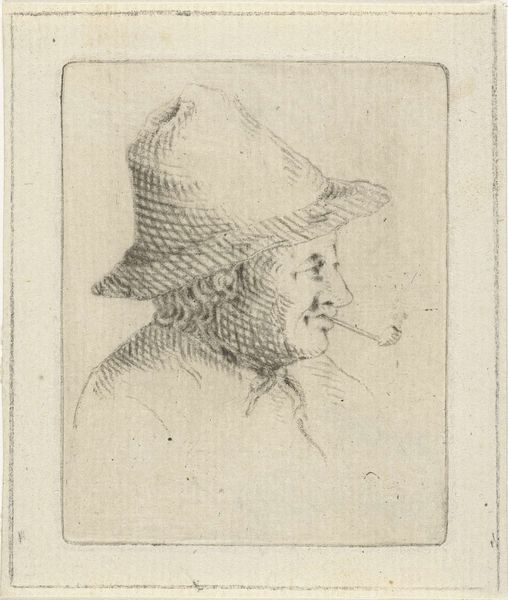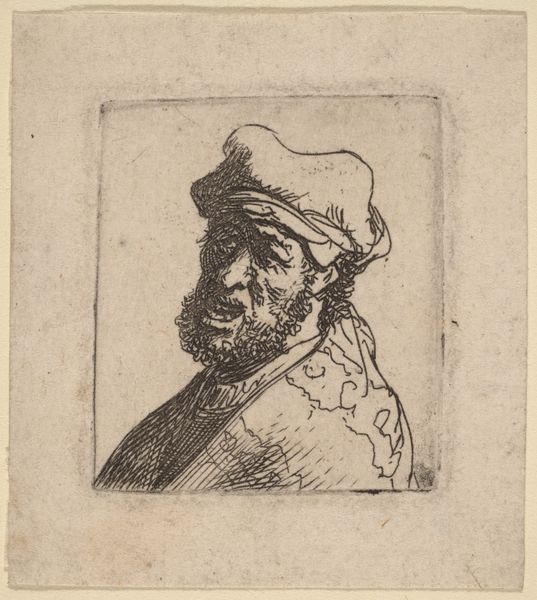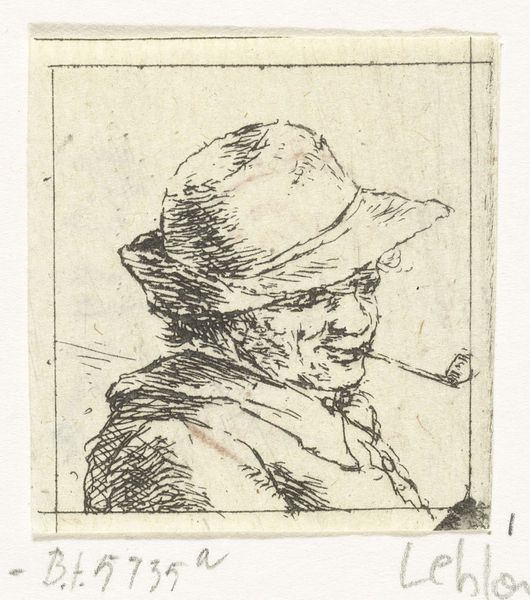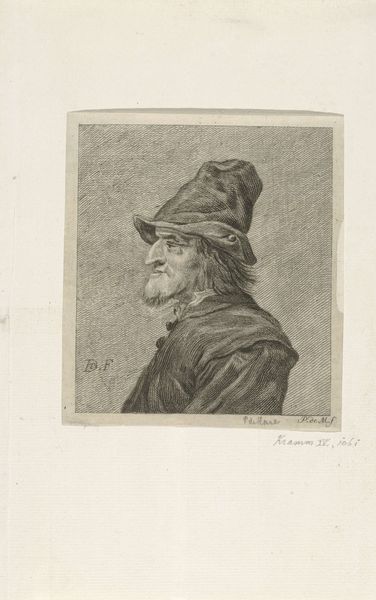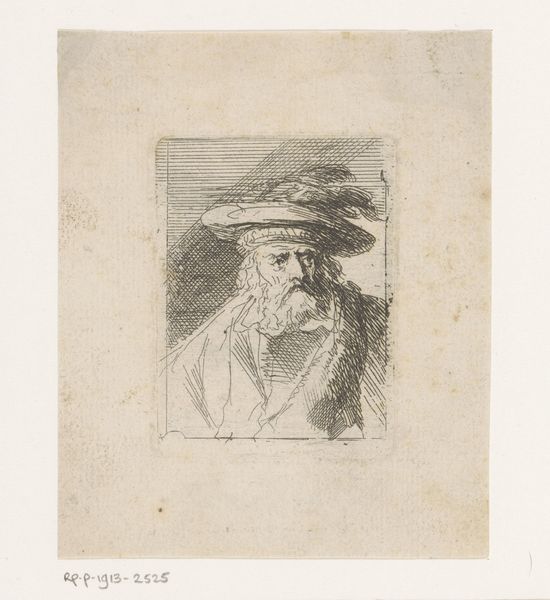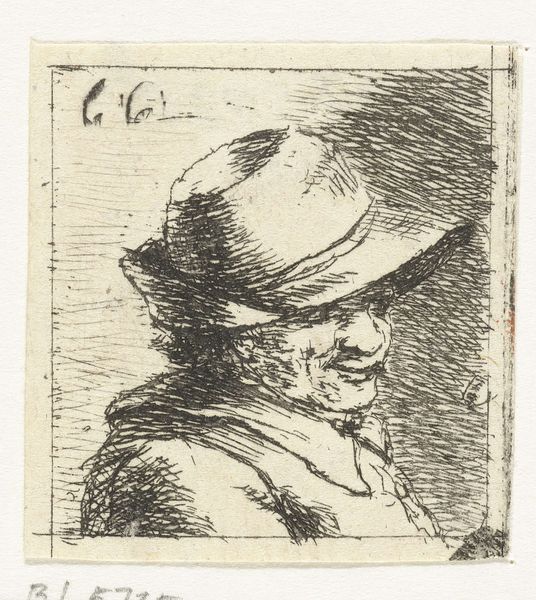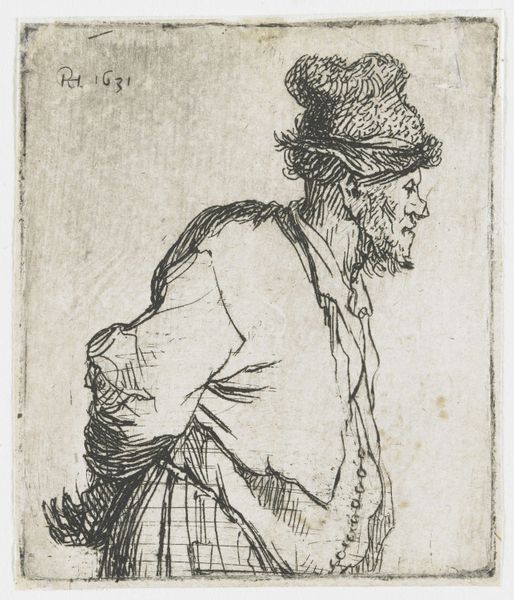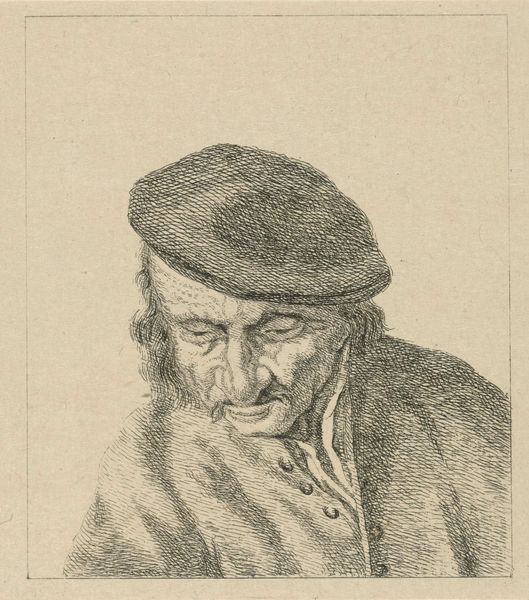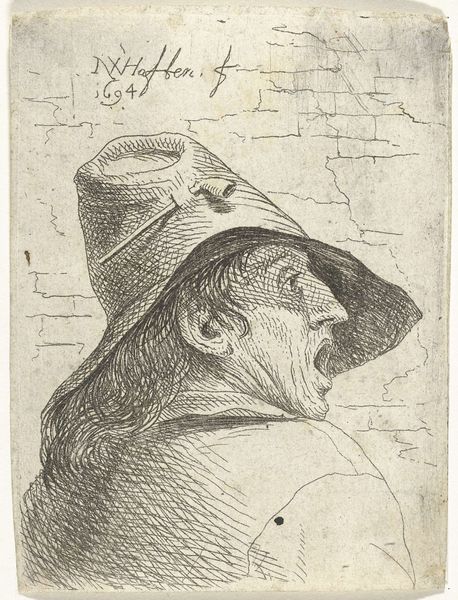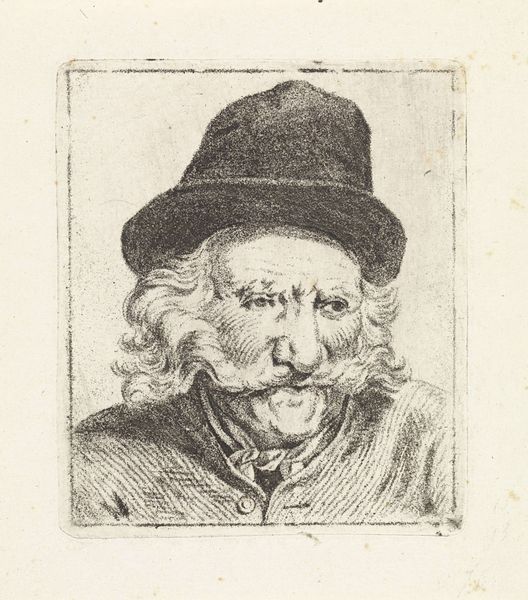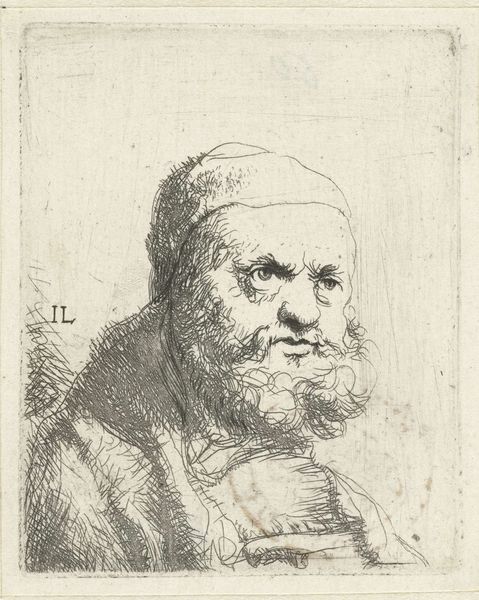
drawing, paper, ink
#
portrait
#
drawing
#
pencil sketch
#
paper
#
ink
#
realism
Dimensions: width 34 mm, height 47 mm
Copyright: Rijks Museum: Open Domain
Editor: This drawing, "Buste van een oude visser" or "Bust of an Old Fisherman," was created by Pieter de Mare between 1777 and 1779. It's made with ink on paper and the detail achieved is just incredible, especially around the face. What’s most striking is the sheer amount of fine work that goes into depicting this one figure. What catches your eye? Curator: I'm drawn to the deliberate use of simple materials – paper and ink – to portray the laboring class. Consider the availability of these materials in the late 18th century. How does the artist's choice to work with these commonplace substances affect our perception of the fisherman, and, more broadly, the representation of labor itself? Is this glorification or documentation? Editor: That's interesting. It's easy to miss how the everydayness of the materials relates to the subject's social status. So, the labor isn’t just visible within the portrait of the man, but the labor to *make* the art itself? Curator: Exactly. This wasn't an expensive oil painting commissioned by a wealthy patron. The accessibility of ink and paper speaks volumes about the intended audience, maybe not royalty but merchants interested in documentation and craft, or, at least, more widespread social appeal than, say, a full canvas rendering. And what can be learned about the kind of artistic labor involved? Editor: So, analyzing the materials shifts the focus to the act of creation and its place in society. Now that you mention the artistic labour involved to depict the subject in realistic detail, it becomes even more telling of how this artist wanted to document society! Curator: Precisely. Thinking about the material realities helps us re-evaluate traditional distinctions. This drawing is more than just a portrait. It’s a testament to artistic choices, accessible material, social documentation, and labor itself, all intertwined.
Comments
No comments
Be the first to comment and join the conversation on the ultimate creative platform.
